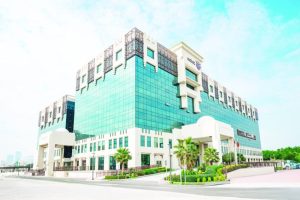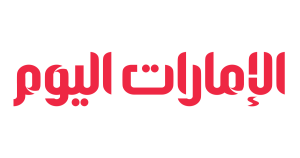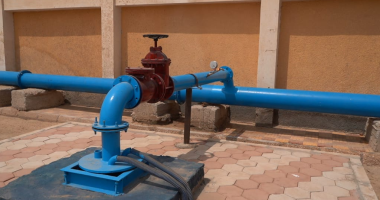Dr. Abdel Fattah Serag, Governor of Sohag, confirmed that the drinking water and sanitation sector has witnessed remarkable development through the presidential initiative projects to develop the Egyptian countryside “Hayah Karima” launched by President Abdel Fattah El-Sisi. Water and sanitation services in Sohag will be fully covered after the completion of the three phases within the population cluster boundaries. The initiative contributes to sustainable development and citizen satisfaction.
Engineer Mohamed Salah El-Din Abdel Ghafar, Chairman of the Board of Directors of the Sohag Drinking Water and Sanitation Company, stated that 4 groundwater wells were drilled and operated at the Araba Abu Aziz artesian water station with a total capacity of 7,000 cubic meters per day as part of the presidential initiative projects to develop the Egyptian countryside “Hayah Karima”.
The Sohag Water Chairman pointed out that the problem of weak water supply in Al-Gharizat village and its hamlets, which include the hamlets of Awlad Mohamed, Al-Jabal, and Al-Arab Al-Qibli, has been resolved, and water has reached all high mountainous areas with appropriate pressure and quantities for all citizens.
Engineer Mohamed Salah El-Din Abdel Ghafar explained that the first phase projects of the presidential initiative to develop the Egyptian countryside “Hayah Karima” are being implemented in 181 villages across seven centers: Tama, Maragha, Saqlata, Al-Mansha, Al-Balina, Dar Al-Salam, and Girga. Water and sanitation projects include 10 wastewater treatment plants with a design capacity of 330,000 cubic meters per day serving 2.3 million people, 165 integrated sanitation projects in targeted villages serving 2 million people, 6 drinking water stations with a design capacity of 130,000 cubic meters per day serving 920,000 people, and 117 groundwater wells with a design capacity of 126,000 cubic meters per day. Additionally, 920 km of water networks have been extended and reinforced, 200 km of water networks have been replaced and renewed, 247,000 sanitation connections have been implemented with 99% completion, 169,000 drinking water connections with 97% completion, and 9 km of sanitation networks have been extended and reinforced in served villages.













Recommended for you
Exhibition City Completes About 80% of Preparations for the Damascus International Fair Launch
Talib Al-Rifai Chronicles Kuwaiti Art Heritage in "Doukhi.. Tasaseem Al-Saba"
Unified Admission Applications Start Tuesday with 640 Students to be Accepted in Medicine
Egypt Post: We Have Over 10 Million Customers in Savings Accounts and Offer Daily, Monthly, and Annual Returns
His Highness Sheikh Isa bin Salman bin Hamad Al Khalifa Receives the United States Ambassador to the Kingdom of Bahrain
Al-Jaghbeer: The Industrial Sector Leads Economic Growth